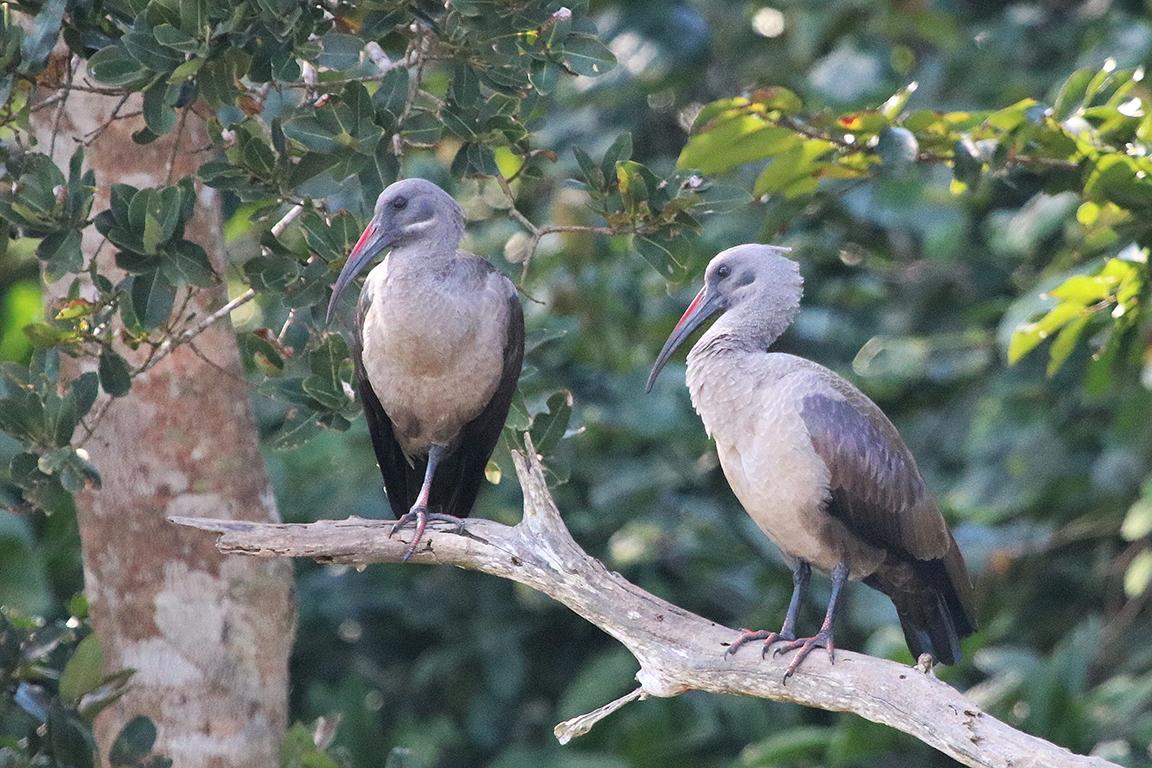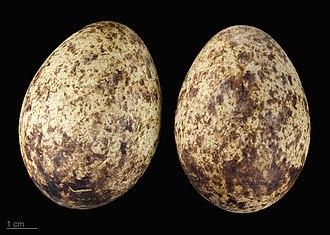Hadeda Ibis

St Lucia Wetlands, Kwazulu Natal, South Africa
The hadeda ibis is found in many parts of Sub-Saharan Africa. It is less dependent on water than other ibises, and can be found in grasslands and savanna as well as wetlands, although invariably close to water. They have adapted well to urban living and can be found in large gardens, parks and cultivated land. They are largely non-migratory but will move between regions to avoid drought. Numbers have increased substantially in the twentieth century with increasing tree cover and irrigation.
Feeding
The hadeda diet includes insects, millipedes, earthworms and small lizards. They use their long, scimitar-shaped beaks to probe the earth for prey.
Breeding
Hadeda ibises are monogamous for up to a year. Their solitary nests are a platform of twigs build on a large tree branch. Both parents incubate the clutch of three to four eggs and feed the chicks by regurgitating food. Many chicks die from injuries sustained by falling from their nests.
Wildfile Specials.
Like other ibises and spoonbills, hadedas have sensory pits at the tips of their beaks which enable them to locate underground prey such as earthworms, larvae and insects.
- The name hadeda is onomatopoeic: the three or four note call -"haa-haa-haa-de-dah" heard at dawn and dusk as it flies from and to its tree roost, is reputedly the loudest of any African bird.
- Hadeda ibis have a penchant for snails and will clear gardens, bowling greens and golf courses of the pests. They are very popular with gardeners.
- Hadedas have adapted so well to urban living that they are to judge the direction of gaze of humans and how fast they are approaching for the most efficient flight initiation distance (they fly at the last possible moment in order to remain safe).
- Flying hadedas are considered a sign of approaching rain in Lesotho
- A myth amongst the Bantu people of Uganda, tells of a man and woman who starve themselves to feed their childern during a famine and are turned into hadeda ibises that are named Mpabaana.
- In Zulu legend, anyone who mocks the hadeda will break out in absesse
